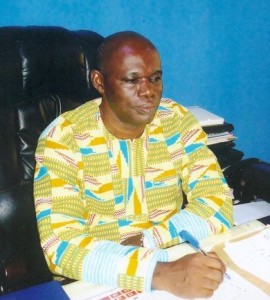NVTI calls for more resource allocation to TVET

The Executive Director of the National Vocation Training Institute (NVTI) Mr Stephen Bismark Amponsah has criticized Government’s decision to build 200 Community Day Senior High Schools when vocational institutions were struggling to survive.
He said in as much as the initiative was laudable, many resources could have been channelled to improve upon already existing infrastructure and replace obsolete tools, equipment and machines at the vocational institutions to promote quality skilled training.
Mr. Amponsah expressed this sentiment when he addressed the 3rd graduation of the Biriwa Vocational Training and Rehabilitation Institute (VTRI) in the Central Region on Friday.
The day, which was celebrated on the theme “Technical and Vocational Education Training (TVET) -The solution to Ghana’s economic challenges” offered the graduates the opportunity to showcase some of their products.
Some 210 students graduated after four years of training in block laying and concreting, carpentry and joinery, general electricals, catering, dressmaking, leather works, welding and fabrications, motor vehicle mechanics, refrigeration and air conditioning as well as generic skills for sustainable livelihood.
The NVTI Executive Director stressed that Ghana needed to make conscious efforts to target and strengthen TVET on the development agenda, to be able to attain the desired national development as it is the master key to the socio-economic development of every nation.
He said that TVET was struggling to survive in the country because of the numerous challenges and appealed to all stake holders to support the training of the youth to acquire skills for their livelihood.
Mr. Amponsah also called for collaboration between stakeholders, vocational and technical training institutions as well as employers in order to achieve quality skilled training for the youth to contribute meaningfully to the socio-economic development of the country.
The Institute Manager, Mr Samuel Kwashie Amegbor said the institute since its establishment in 1974 has trained more than 6,500 local and international students in various vocations and technical disciplines who were excelling in their fields of specialty globally.
He expressed concern that many Ghanaian parents preferred supporting their wards in senior High schools to those in the Technical and Vocational Training Institutes, which he said sometimes posed serious problems for the school administrators.
He bemoaned that though Technical and Vocational education was the engine of growth in many nations, it was looked down upon in the country with many thinking that it is an option for the academically declined student.
He urged parents to encourage and support their children to pursue and develop interest in technical and vocational training.
Mr. Amegbor called on the Government and other stakeholders to help the institute address its problem of inadequate residential accommodation for students and teaching staff.
Dr. Baaba Aidoo, a Senior Lecturer at the Faculty of Education at the University of Cape Coast, called on the Government to create a national Fund for Ghana Vocational Education and Training (GVET) to support and make vocational and technical institutions attractive to the youth.
She said TVET could train the youth with the necessary skills and expertise to be self-employed to reduce the unemployment rate as well as training experts to fit into the oil and gas industry.
Mr. Adu Gyamfi Marfo, President of the Old Students Association, called on old students both home and abroad to support their Alma- Mater to enable it address its challenges, and appealed for financial support to help tar the roads in the school, build additional bungalows for teachers and buy a bus for the school.
Source: GNA
